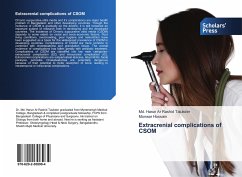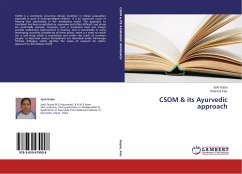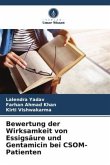Chronic suppurative otitis media and it's complications are major health problem in Bangladesh and other developing countries. Though the incidence of CSOM is gradually on the decline, it is still remained an important subject of research both in developing and the developed countries. The incidence of Chronic suppurative otitis media (CSOM) depends to some extent on racial and socio-economic factors. Poor living conditions, overcrowding, poor hygiene and malnutrition have been suggested as a basis for the widespread prevalence of CSOM in developing countries. Complications of CSOM are more common in combined with cholesteatoma and granulation tissue. The overall incidence of complications has fallen greatly with antibiotic treatment. Complications of CSOM are classified into two main categories- extracranial complication (EC) and intracranial complication (IC). Extracranial complications are subperiosteal abscess, labyrinthitis, facial paralysis, petrositis. Cholesteatomas are potentially dangerous because of their potential to incite resorption of bone, leading to intratemporal or intracranial complications.
Hinweis: Dieser Artikel kann nur an eine deutsche Lieferadresse ausgeliefert werden.
Hinweis: Dieser Artikel kann nur an eine deutsche Lieferadresse ausgeliefert werden.








